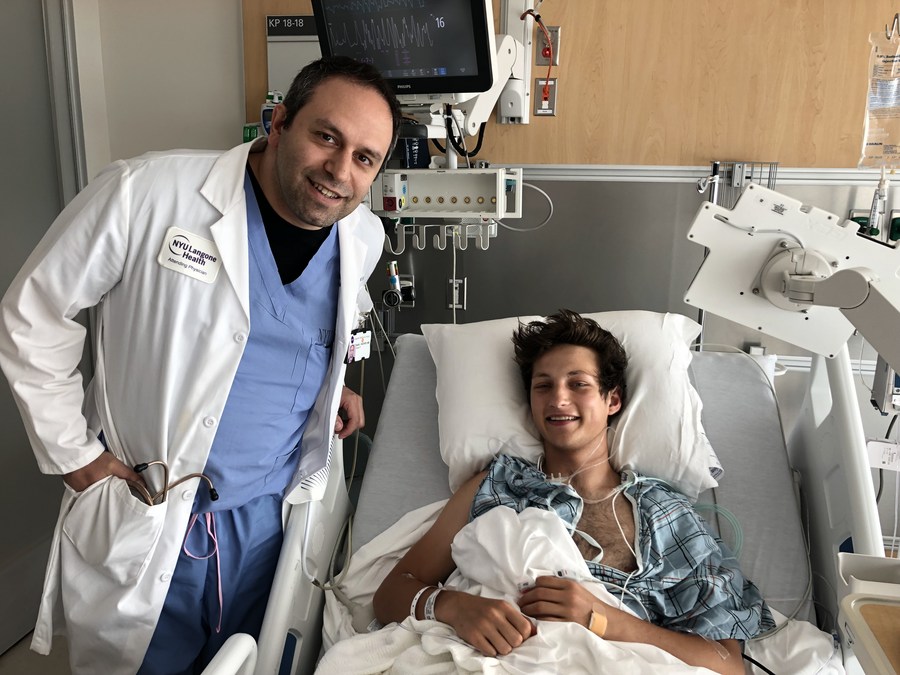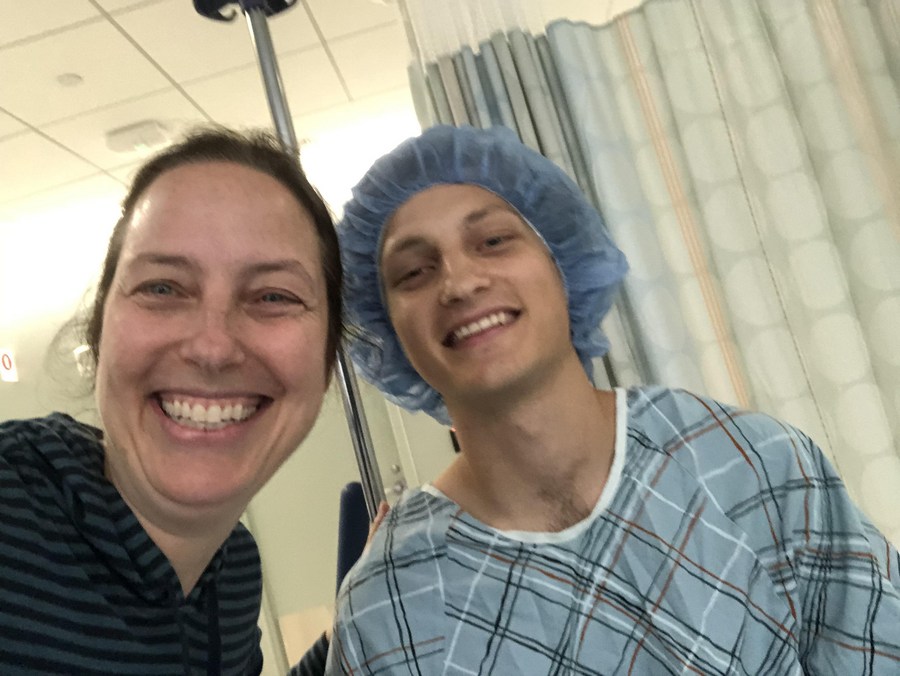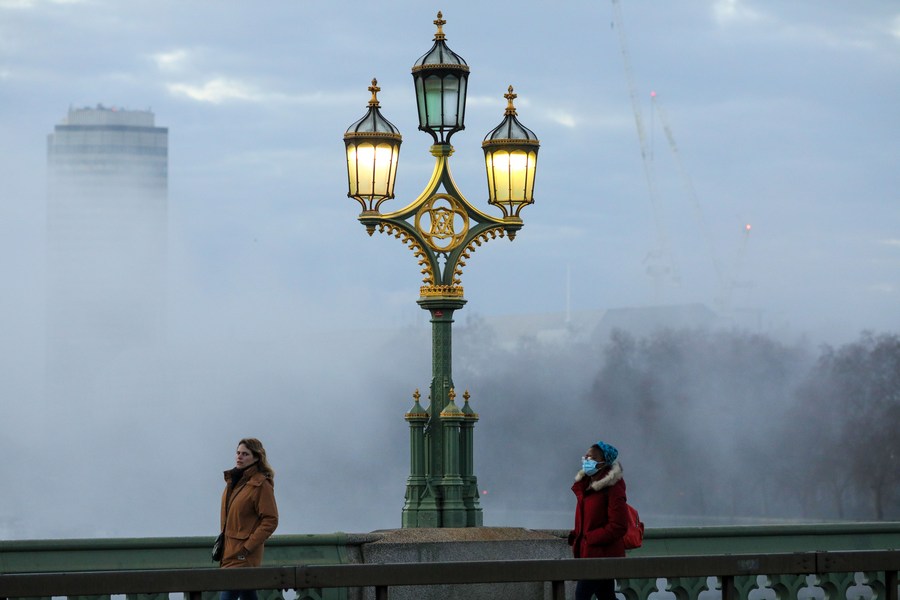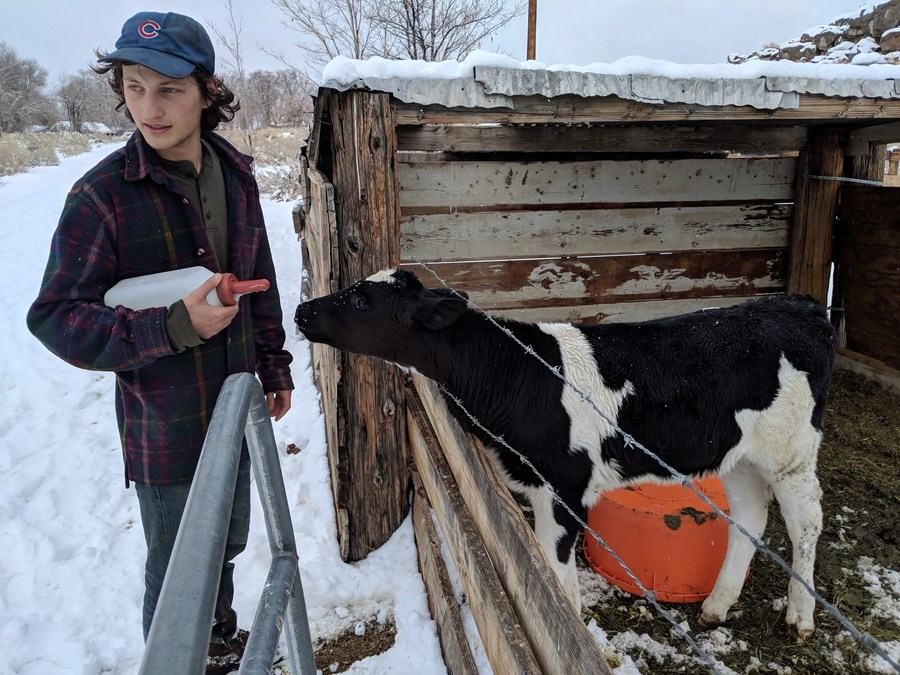
Photo provided by Abie Rohrig shows him with his surgeon after his kidney donation in New York, the United States, on July 13, 2019. (Xinhua)
Just one year later, as London is looking for volunteers to take part in the "human challenge" program, he has signed up to be considered as one who could take part -- intentionally exposing himself to the virus responsible for COVID-19 if selected.
"If London called, I'd answer," Rohrig, who is based in New York City, told Xinhua. He plans to fly to London to take part in the vaccine trial if chosen by the program, presumably in January.
LONDON, Dec. 3 (Xinhua) -- When Abie Rohrig was just 17, he decided to donate his kidney to a stranger -- and he did. Now 20, Rohrig is prepared to put his life on the line again, volunteering to take part in the United Kingdom's (UK) COVID-19 "human challenge" program.
As a college student and the director of communications for 1Day Sooner, a non-profit organization that advocates on behalf of the UK's COVID-19 "human challenge" trial volunteers, Rohrig has spent much of the last few years looking at how he can help those most in need.
Recalling the donation of his kidney to a stranger last year, he told Xinhua that it was "the right decision the whole time."
"I knew the risk was what it was ... I knew the long-term risks were what they were, according to the literature," he said. "I mean, it was nerve-wracking, but I never had any second thoughts."

Photo provided by Abie Rohrig shows him with his mother before his kidney donation in New York, the United States, on July 12, 2019. (Xinhua)
Just one year later, as London is looking for volunteers to take part in the "human challenge" program, he has signed up to be considered as one who could take part -- intentionally exposing himself to the virus responsible for COVID-19 if selected.
"If London called, I'd answer," Rohrig, who is based in New York City, told Xinhua. He plans to fly to London to take part in the vaccine trial if chosen by the program, presumably in January.
Rohrig understands that vaccine trials are key to making sure that the poorest countries in the world can also be in line to receive vaccine doses, as more available vaccines that have been tried and tested means a greater chance of distributing them worldwide.
For this reason, Rohrig and many others are putting themselves forward.
"So 1Day Sooner's key focus over the next couple of months is trying to make sure that 'human challenge' trials can quickly test vaccines that are easier to distribute in the developing world. There still is a need for many more vaccines that can be distributed in poor countries," he said.
"And the reason for taking part in such a trial in the first place was this desire to save as many lives as possible. So, everyone I was talking to is still ready to take part in a challenge trial," he added.

People walk on Westminster Bridge, in London, Britain, Nov. 27, 2020. (Photo by Tim Ireland/Xinhua)
The chance to play a role in saving other people less fortunate than himself has always been a driving force behind Rohrig's major life decisions.
"I think this desire to take on some small risks to help the world is somewhat of a universal human thing," he said.
Back in October this year, the Imperial College London announced that a team of researchers in the UK is set to explore the "human challenge" program with COVID-19.
The UK government said it would invest 33.6 million British pounds (44.8 million U.S. dollars) to fund the first stage of the program. To try and mitigate the risks of the coronavirus vaccine trial, only people between the ages of 18 and 30 will be allowed to take part in the first stage.
Besides the UK, countries such as China, Germany, Russia and the United States are also racing against time to develop coronavirus vaccines to bring life back to normal.

Photo provided by Abie Rohrig shows him feeding Oreo, a calf, during his sophomore year at Deep Springs College in California, the United States, on Feb. 7, 2020. (Xinhua)■



